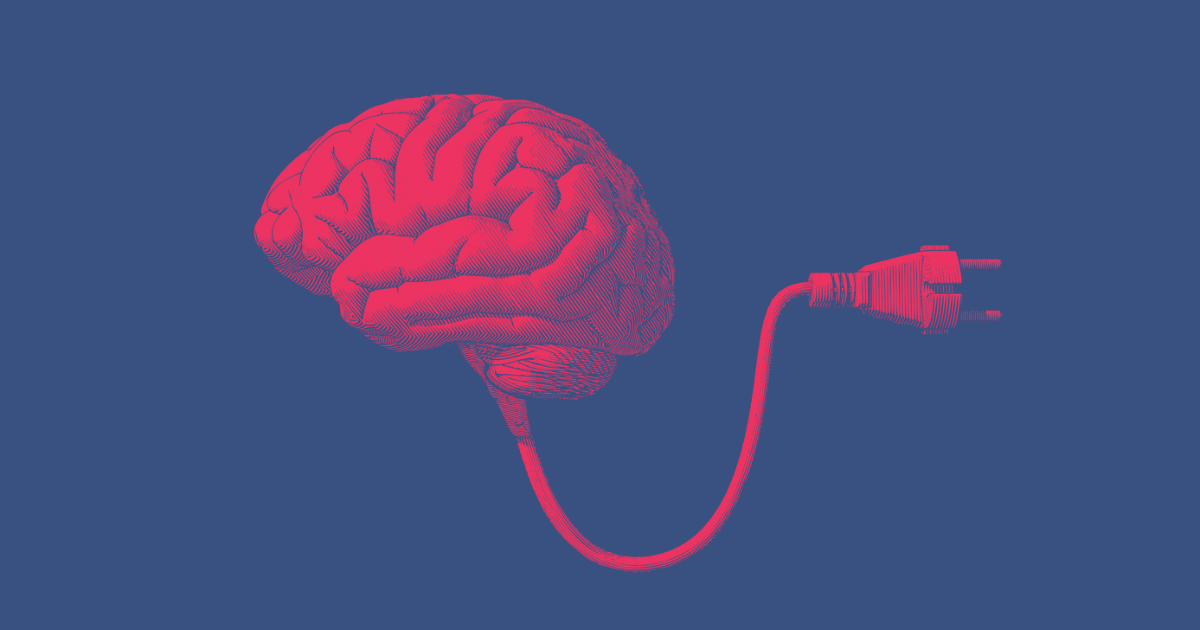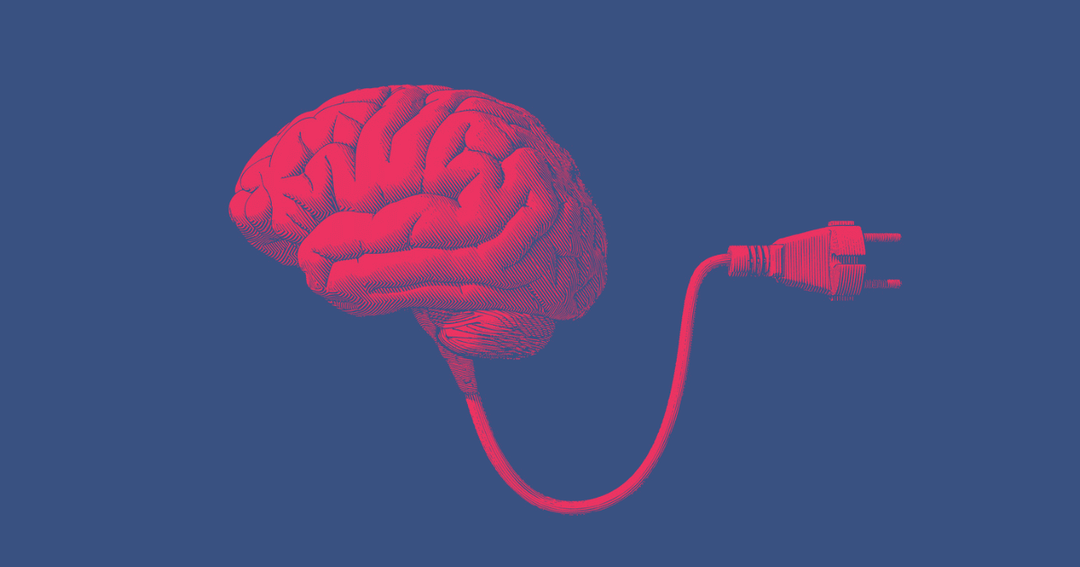What Are Brain Zaps? Causes, Sleep Connection, and How to Stop Them

It can be alarming when you suddenly feel like an electric shock just went through your head. The sensation lasts only a second or two, but it's enough to stop you in your tracks.
You might wonder if something is seriously wrong.
These brief electrical sensations are called brain zaps. While they can be unsettling, they're not dangerous. But they can be uncomfortable, and they can definitely interfere with your sleep.
Here's what you need to know about brain zaps, why they happen, and what you can do about them.
What are brain zaps?
Brain zaps are brief sensations that feel like electrical shocks or jolts in your head. Some people describe them as a "buzz," a "shiver," or a feeling like their brain is vibrating.
The medical community doesn't have one standard term for them. You might see them called "brain shivers" or "brain shocks" in social media communities, though these aren't official diagnostic terms. Brain zaps are most commonly associated with antidepressant discontinuation syndrome (ADS).
Each brain zap typically lasts just 1-2 seconds. They don't cause any physical damage to your brain, but they can be startling and uncomfortable.
Brain zaps are most commonly reported by people who are stopping or reducing antidepressant medications. Some studies indicate rates as high as 40-50% among those discontinuing specific medications [1].
What do brain zaps feel like?
The experience varies from person to person, but common descriptions include:
-
A sudden jolt or shock sensation in your head
-
A buzzing or vibrating feeling in your brain
-
A sensation like your brain is "shifting" inside your skull
-
Brief disorientation or dizziness
Brain zaps often come with other symptoms:
-
Visual disturbances (brief flashes of light or blurred vision)
-
Dizziness or vertigo
-
A "whooshing" sound in your head
-
Ringing in your ears
-
Nausea
-
Brief confusion
For many people, certain movements seem to trigger brain zaps. Quick eye movements—like looking from side to side rapidly—are a common trigger. Sudden head movements can also bring them on.
A 2022 study of over 3,000 people experiencing brain zaps found that lateral eye movements (looking side to side) were one of the most frequently reported triggers, a pattern that researchers note is unique among medication withdrawal symptoms and warrants further neurological investigation [2].
What causes brain zaps?
Stopping or reducing antidepressants
This is by far the most common cause of brain zaps. They happen when you stop taking or lower your dose of certain antidepressants, particularly:
SSRIs (selective serotonin reuptake inhibitors):
-
Paroxetine (Paxil)—most commonly linked to brain zaps
-
Sertraline (Zoloft)
-
Citalopram (Celexa)
-
Escitalopram (Lexapro)
-
Fluoxetine (Prozac)—less common because it stays in your system longer
SNRIs (serotonin-norepinephrine reuptake inhibitors):
-
Venlafaxine (Effexor)—very commonly causes brain zaps
-
Duloxetine (Cymbalta)
-
Desvenlafaxine (Pristiq)
A 2018 study analyzing reports from 595 individuals found that venlafaxine (Effexor) and paroxetine (Paxil) were the medications most commonly associated with brain zaps. The study also found that while gradual tapering reduced the risk compared to abrupt discontinuation, it didn't eliminate brain zaps entirely for many people [4].
Abruptly stopping antidepressants can cause a condition called antidepressant discontinuation syndrome (also known as antidepressant withdrawal syndrome). Brain zaps are one of the most commonly reported symptoms of this syndrome, along with headaches, dizziness, fatigue, and sleep issues [3].
These medications change the levels of neurotransmitters (chemical messengers) in your brain. When you stop taking them, your brain needs time to adjust back to making these chemicals on its own. Brain zaps are part of that adjustment process.
Stopping your medication suddenly makes brain zaps much more likely and more severe. That's why doctors recommend tapering off slowly under medical supervision.
Other medications
Brain zaps can also happen when stopping:
-
Benzodiazepines (anti-anxiety medications)
-
Some mood stabilizers
-
Certain ADHD medications
Other possible causes
Less commonly, brain zaps can be related to:
-
Severe anxiety or panic attacks
-
Significant sleep deprivation
-
Caffeine or alcohol withdrawal
-
Low vitamin B12 levels
The connection between these factors and brain zaps isn't as well understood and needs more research.
Also Read: Why Your Brain Needs Better Sleep to Function at Its Best
How do brain zaps affect your sleep?
Brain zaps and sleep problems often go hand in hand.
Trouble falling asleep
Many people notice brain zaps, specifically when they're trying to fall asleep. Just as you're drifting off, a brain zap jolts you awake. This can happen multiple times, making it take much longer to fall asleep.
This is different from hypnic jerks—those normal muscle twitches that sometimes happen as you fall asleep. Brain zaps feel more like an electrical sensation inside your head rather than a muscle movement.
Waking up during the night
Brain zaps don't always wait until you're trying to fall asleep. They can:
-
Wake you from sleep multiple times per night
-
Disrupt your sleep even if you don't fully wake up
-
Keep you in lighter stages of sleep instead of deep, restorative sleep
Even if brain zaps don't wake you completely, they can interfere with your sleep cycle. You might spend the right amount of time in bed, but still wake up feeling tired.
Poor sleep makes brain zaps worse
The relationship goes both ways. Brain zaps make it hard to sleep well, but lack of sleep also seems to make brain zaps more frequent and more intense.
When you're very sleep-deprived, it affects the neurotransmitters in your brain, the same chemical messengers involved in brain zaps from medication withdrawal. This disruption might trigger or worsen brain zaps, especially in people already prone to them.
This creates a frustrating cycle:
-
Brain zaps disrupt your sleep
-
Sleep deprivation makes brain zaps worse
-
Worse brain zaps further disrupt sleep
-
The cycle continues
Additionally, the stress and anxiety that come with chronic sleep problems can make brain zaps worse. Stress affects your nervous system in ways that might make these sensations more likely.
Overall impact on sleep quality
When brain zaps affect your sleep regularly, you might experience:
-
Taking 30-60 minutes or longer to fall asleep
-
Less time in deep sleep and REM sleep
-
Feeling tired and foggy the next day
-
Anxiety about going to bed (worrying that brain zaps will happen)
How long do brain zaps last?
Each episode
An individual brain zap lasts just 1-2 seconds. Some people get them one at a time, while others experience several in a row (called clusters).
The overall timeline
If your brain zaps are from stopping antidepressants, here's a general timeline:
|
Time after stopping medication |
What to expect |
|
First few days |
Brain zaps may start or get worse |
|
Week 1-2 |
Often, the worst period |
|
Week 2-4 |
Usually starts to improve |
|
Week 4-8 |
Continue to get better |
|
2-3 months |
Most people are much better or fully recovered |
However, this varies quite a bit. Some people only have brain zaps for a few days. Others experience them for several months. In rare cases, they can persist for six months or longer (protracted withdrawal).
What affects how long they last
Several factors influence the duration:
-
Which medication you were taking (some cause longer-lasting symptoms than others)
-
How quickly you stopped (sudden discontinuation usually means longer recovery)
-
How long you took the medication
-
Your individual brain chemistry
-
How well you're sleeping and managing stress
The good news is that brain zaps almost always get better over time. Even if they don't disappear right away, they typically become less frequent and less intense.
Research into brain zaps is still limited. Systematic reviews from 2023-2024 identify brain zaps as one of the most commonly reported antidepressant withdrawal effects, yet the neurobiological mechanism behind them requires further research [5] [6]. Brain zaps are often underrepresented in official withdrawal rating scales, which researchers acknowledge as a gap that makes prevention and management more difficult.
Are brain zaps dangerous?
No. Brain zaps don’t cause harm to your brain. Even though they can feel intense, they’re not related to:
-
Seizures
-
Strokes
-
Brain damage
-
Permanent changes in brain function
While brain zaps aren't dangerous, they can significantly affect your quality of life. The sleep disruption, anxiety, and general discomfort they cause are real problems that deserve attention and treatment.
While rare, some individuals in research studies have reported that severe brain zaps caused long-term disability. However, for the vast majority of people, brain zaps resolve completely within weeks to months without lasting effects.
When should you see a doctor?
Contact your healthcare provider if:
-
You're thinking about stopping or reducing antidepressant medication (never do this without medical guidance)
-
Brain zaps are severe or getting worse
-
You also have symptoms like seizures, loss of consciousness, or severe headaches
-
Brain zaps are significantly interfering with your daily life
-
Symptoms aren't improving after several weeks
-
You're having trouble sleeping because of brain zaps
-
Brain zaps are causing significant anxiety or distress
-
You're experiencing brain zaps, but haven't recently changed any medications
Your doctor can evaluate whether your symptoms might indicate something else, adjust your medication plan if needed, or refer you to a specialist.
How can you reduce or stop brain zaps?
If you're stopping antidepressants
The most important step is to never stop antidepressants suddenly. Work with your doctor to:
-
Taper off slowly over weeks or months (not days)
-
Reduce the dose gradually (sometimes by as little as 10% at a time)
-
Consider switching temporarily to a medication with a longer half-life if withdrawal symptoms are severe
If you've already stopped your medication abruptly and are experiencing brain zaps, call your doctor. Restarting at a low dose and tapering more slowly might help.
Improve your sleep
Better sleep can help reduce brain zaps. Try:
-
Going to bed and waking up at the same time every day
-
Keeping your bedroom cool, dark, and quiet
-
Avoiding screens for 2-3 hours before bed
-
Practicing relaxation techniques before sleep
-
Creating a calming bedtime routine
Natural sleep aids like Sip2Sleep® may help improve your sleep without the grogginess or unwanted side effects associated with prescription sleep meds. At TMS Institute of Arizona, we use Sip2Sleep® with patients experiencing sleep difficulties and anxiety during depression treatment and antidepressant transition periods, when brain zaps are particularly common
Manage stress
Reducing stress seems to help some people with brain zaps. Consider:
-
Deep breathing exercises
-
Regular physical activity (but not too close to bedtime)
-
Meditation or mindfulness practices
-
Therapy or counseling if stress is significant
Lifestyle adjustments
These changes may help:
-
Limit caffeine, especially after noon
-
Reduce or avoid alcohol
-
Stay hydrated
-
Eat regular, balanced meals
-
Get regular exercise
Consider supplements
Some supplements may help, though research is limited. Always check with your doctor before starting any supplement, especially if you're taking other medications.
-
Omega-3 fatty acids (some evidence that they may help with antidepressant withdrawal [7])
-
Magnesium (supports nerve health and sleep)
-
B-complex vitamins (especially B12)
When brain zaps happen
If you feel a brain zap:
-
Take slow, deep breaths
-
Sit or lie down if you feel dizzy
-
Avoid sudden head movements if these trigger more zaps
-
Remind yourself it will pass in a second or two and isn't dangerous
Be patient
For most people, brain zaps improve significantly within 4-8 weeks. Even if complete resolution takes longer, you'll likely notice gradual improvement.
Keeping a simple log of when brain zaps occur and how severe they are can help you notice progress that might not be obvious day to day.
The bottom line
Brain zaps are brief electrical sensations in your head that are usually harmless but can be quite uncomfortable. They most often happen when stopping or reducing antidepressant medications and typically improve within weeks to months.
The relationship between brain zaps and sleep can be challenging: brain zaps make it hard to sleep, and poor sleep makes brain zaps worse. Breaking this cycle requires addressing both issues.
While brain zaps can be frustrating and disruptive, they do get better with time and proper management.
References:
-
Read, J. (2020). How common and severe are six withdrawal effects from, and addiction to, antidepressants? The experiences of a large international sample of patients. Addictive Behaviors, 102, 106157. https://doi.org/10.1016/j.addbeh.2019.106157
-
Barkho A, Elhusein B, Gajebasia N. A rare case of antidepressant discontinuation syndrome triggered by domperidone: Clinical insights and literature review. SAGE Open Med Case Rep. 2025 May 24;13:2050313X251342973. doi: 10.1177/2050313X251342973. PMID: 40421283; PMCID: PMC12104596.
-
Papp A, Onton JA. Brain Zaps: An Underappreciated Symptom of Antidepressant Discontinuation. Prim Care Companion CNS Disord. 2018 Dec 20;20(6):18m02311. doi: 10.4088/PCC.18m02311. PMID: 30605268.
-
Shapiro B, Kramer E, Khoury D, Preda A. Establishing Core Symptoms of Acute Serotonin Reuptake Inhibitor Withdrawal: Results from an International Survey of Online Peer-Support Communities. Pharmacopsychiatry. 2023 Jul;56(4):133-140. doi: 10.1055/a-2078-4593. Epub 2023 May 30. PMID: 37253382.
-
Moncrieff, J., Read, J., & Horowitz, M. A. (2024). The nature and impact of antidepressant withdrawal symptoms and proposal of the Discriminatory Antidepressant Withdrawal Symptoms Scale (DAWSS). Journal of Affective Disorders Reports, 16, 100765. https://doi.org/10.1016/j.jadr.2024.100765
-
Papp, A., & Onton, J. A. (2018). Brain zaps: An underappreciated symptom of antidepressant discontinuation. The Primary Care Companion for CNS Disorders, 20(6), 18m02311. https://doi.org/10.4088/PCC.18m02311







